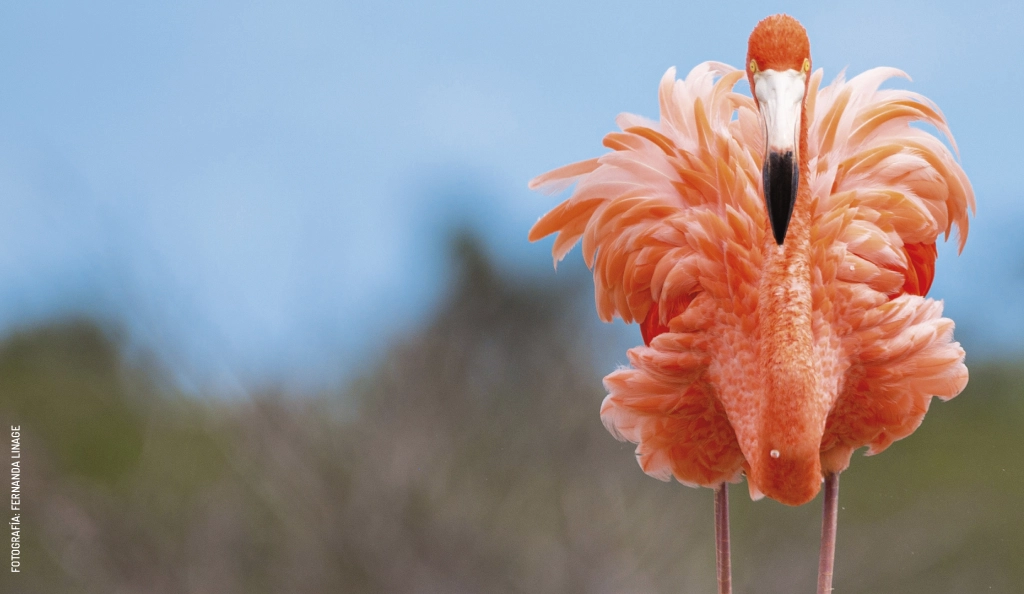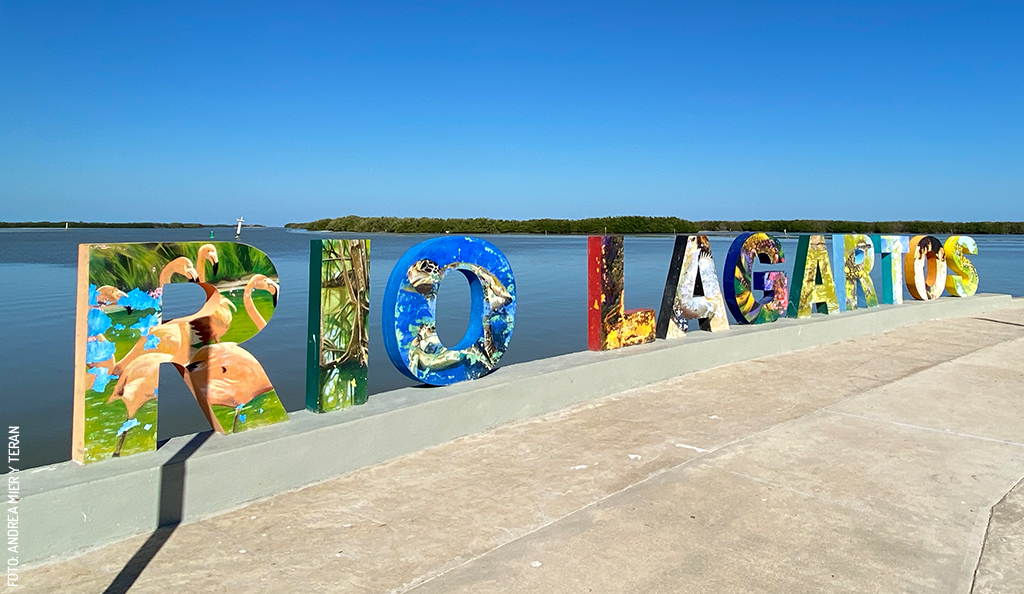
Rio Lagartos
Río Lagartos
A trip to the Gulf Coast of México is a perfect short getaway whether you have one day or a full weekend to spare. Two and a half hours from Mérida by car and we’re in the mangrove paradise of Río Lagartos.
Declared “Biosphere Reserve,” with 60,000 hectares, Río Lagartos, located 2.5 hours from Mérida (230 kms) and from Playa del Carmen, and 1.5 hours from Chichén Itzá, hosts the largest American flamingo population in México. They build their nests in the spring and summer.
Its coastal lagoons are areas of seasonal rest and winter territory for flocks of migratory and local birds, with a current record of 388 different bird species in the area. The beaches offer habitat for nesting of Carey and white marine turtles.
Río Lagartos is famous for its flamingo colonies and variety of bird species. To sum it up, this is a great place for bird watchers and adventure ecotourism.
Tours in Río Lagartos
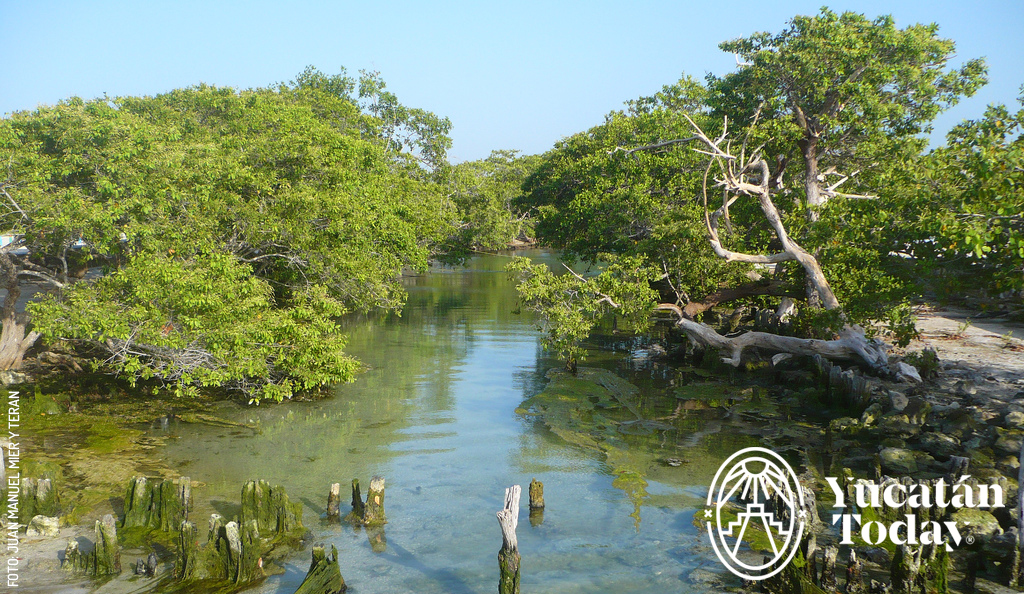
The very first thing we do is meet our tour guide, Manuel from River Flamencos Tours (a Co’ox Mayab cooperative) and pepper him with questions about the day: about what we’ll see, where we’re going, will we see crocodiles, and, most importantly, why are there no alligators in Río Lagartos when “Lagarto” means alligator in Spanish? Manuel laughs and walks us to a large map of the mangrove and Ría (estuary). He shows us exactly what we’ll be doing, tells us he can’t promise us a crocodile, and explains that when the Spanish arrived in the area they misunderstood everything and named the town Río Lagartos (Alligator River) instead of Ría Cocodrilo (Crocodile Estuary), which would have been more accurate.
The Maya name for the village, I learn, is actually Holkoben. Once that misunderstanding is cleared up we jump on our Lancha (small boat) and head off to explore the mangroves and estuary. In May - June there are thousands of flamingos in the area but when we visit, in late September, there are very few left. That’s ok though, as there are also very few other visitors, which makes our stay incredibly chilled, relaxing, and exactly what we were looking for.
Flamingos and Crocodiles
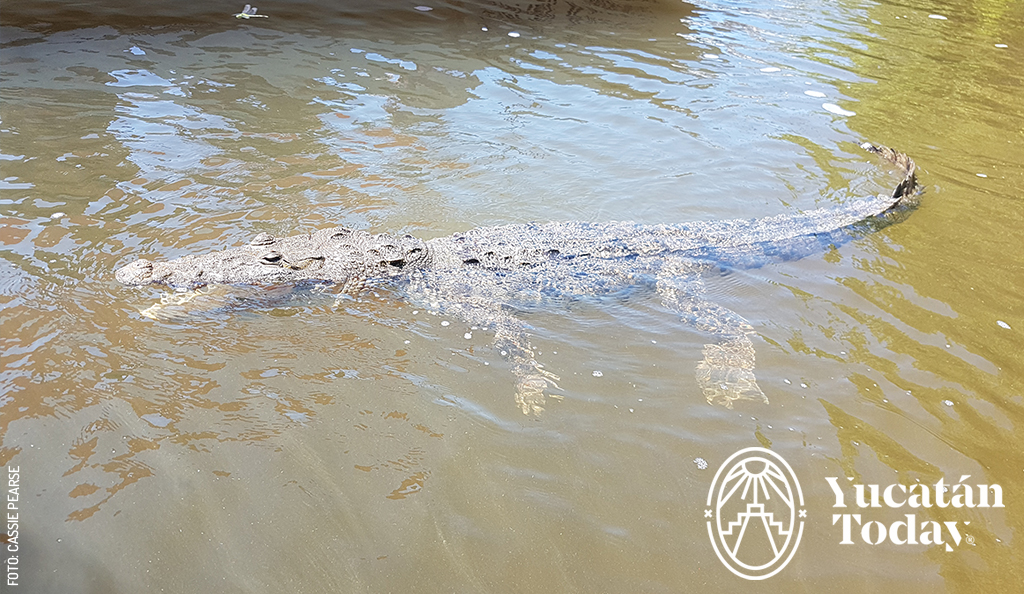
As my kids demand Manuel take us faster and faster through the mangrove we wind up slowing down to watch the flamingos. We stop again when we spot a crocodile just hanging out at the side of the water - we learn that it’s hard to tell a crocodile’s gender without flipping it to get a good look. Good job, I don’t care about gender as I can’t imagine a crocodile being particularly thrilled by a gender reveal flip!
Near Río Lagartos
Las Coloradas Salt Lakes
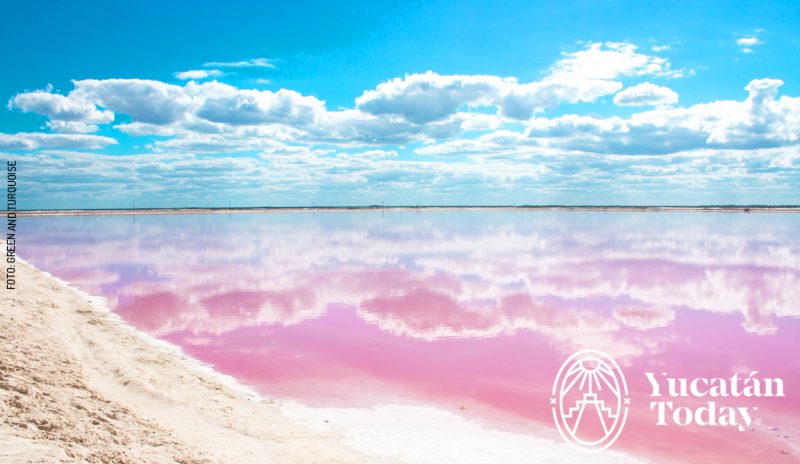 We stop at a viewpoint for the pink salt lakes of Las Coloradas and to smother mud over ourselves (think Dead Sea mud experience). Then, we head back to the boat and zoom back down the Ría and through the mangroves to a stunning little strip of beachy paradise in order to wash off the mud and enjoy the scenery. After this fabulous tour, we were starving hungry so we headed to Ría Maya for a great big meal paired with an outstanding vista over the water.
We stop at a viewpoint for the pink salt lakes of Las Coloradas and to smother mud over ourselves (think Dead Sea mud experience). Then, we head back to the boat and zoom back down the Ría and through the mangroves to a stunning little strip of beachy paradise in order to wash off the mud and enjoy the scenery. After this fabulous tour, we were starving hungry so we headed to Ría Maya for a great big meal paired with an outstanding vista over the water.
San Felipe
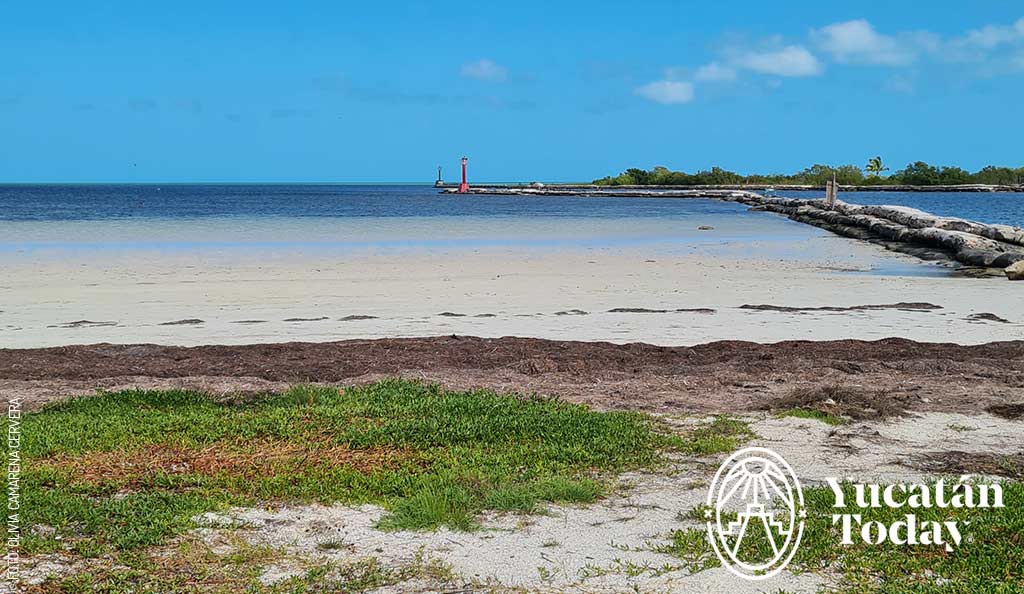
Fewer than twenty minutes' drive away is the even sleepier town of San Felipe from where there is another selection of Ría tours available. In San Felipe, if you’re after a boat tour, you need to head to the Palapa at the end of the town. Here, we had a chat with the cooperative members and figured out exactly what we wanted to do whilst in town. Technically there is a list of tours (Isla Los Cerritos, Ojo de Agua, Playa Bonita, or the flamingo tour). I also know for a fact that you can arrange a fishing expedition or even a night tour of the Ría if you talk to the right people (I’m kidding, just ask!). We had been to Playa Bonita last time we were in town, so we opted to combine the Isla Los Cerritos and Ojo de Agua tours into one extra special, just-for-us tour.
How to get there
You can get to Río Lagartos via a travel agency, in a rented car or by bus. By car from Mérida drive east to Tizimín and then go north to Río Lagartos.
Directory
Where to Eat in Río Lagartos
Ría Maya (also has a hotel)
Calle 19 #134
www.birdingyucatan.com/ria-maya-lodge.html
El Perico Marinero
Calle 9
Tel. (986) 862 0058
FB: El Perico Marinero
Restaurante y Posada Macumba
Calle 11
Tel. (986) 862 0092
FB: Restaurante y Posada Macumba
Where to Stay in Río Lagartos
Hotel Rio Lagartos
Calle 14, Lotes 17 y 19
www.hotelriolagartos.mx
Yuum Ha Boutique Hotel
Calle 9 x 12 y 14
Tel. (986) 862 0508
www.yuumhahotel.com
Hotel Villa de Pescadores
Calle 14 #95 Malecón Costero
Tel. 986 862 0020
www.hotelvilladepescadores.com
Hotel Posada Mercy
Calle 13 #92
Tel. (986) 862 0076
La Placita Hotel
Calle 10 x 9
Tel. (986) 862 0075
Hotel Tabasco Rio
Calle 12 #115
Tel. (986) 862 0116
Ria Maya
Calle 19 #134 x14
Tel. (986) 862 0045
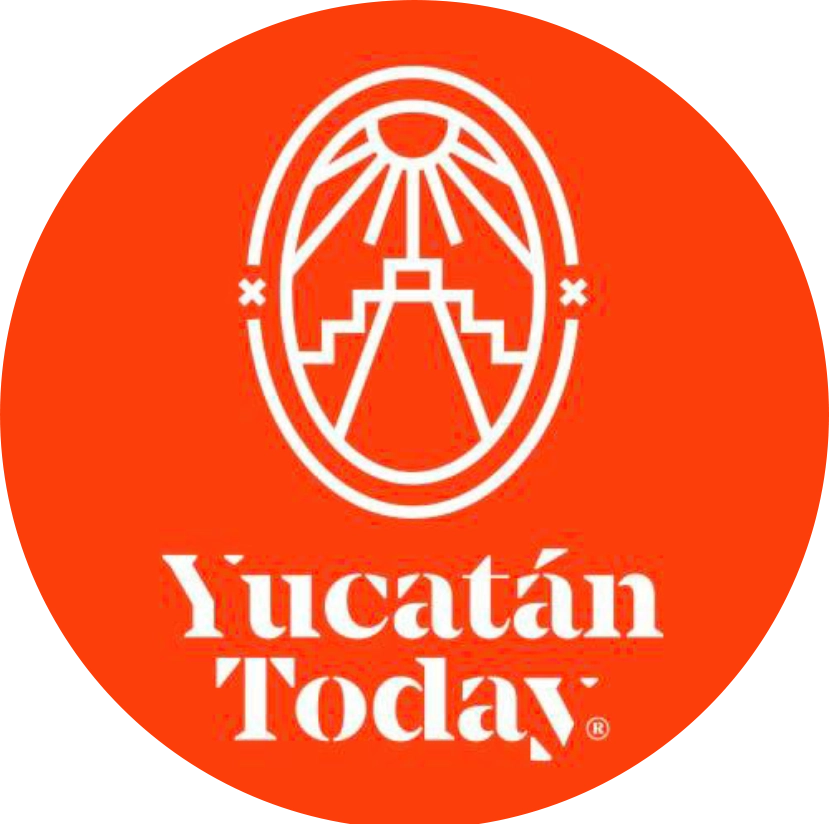
Author: Yucatán Today
Yucatán Today, the traveler's companion, has been covering Yucatán’s destinations, culture, gastronomy, and things to do for 37 years. Available in English and Spanish, it’s been featured in countless travel guides due to the quality of its content.
In love with Yucatán? Get the best of Yucatán Today delivered to your inbox.
Related articles
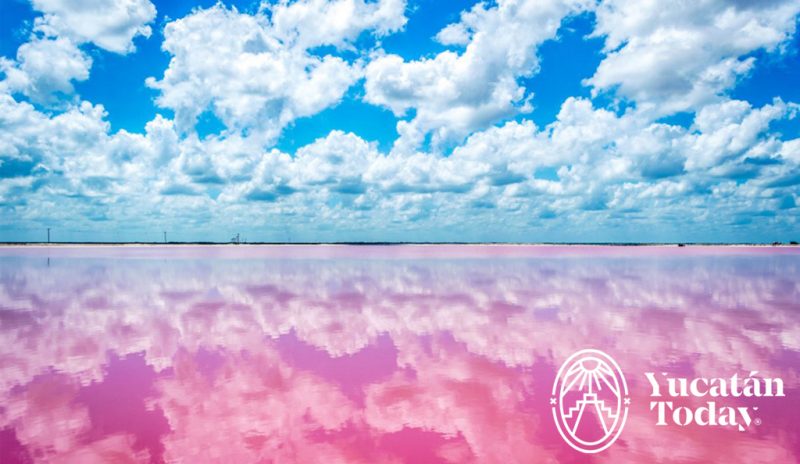
Las Coloradas
In Yucatán there is a place with a breathtaking landscape: imagine a combination of a perfectly clear blue sky with stunning pink waters beneath it....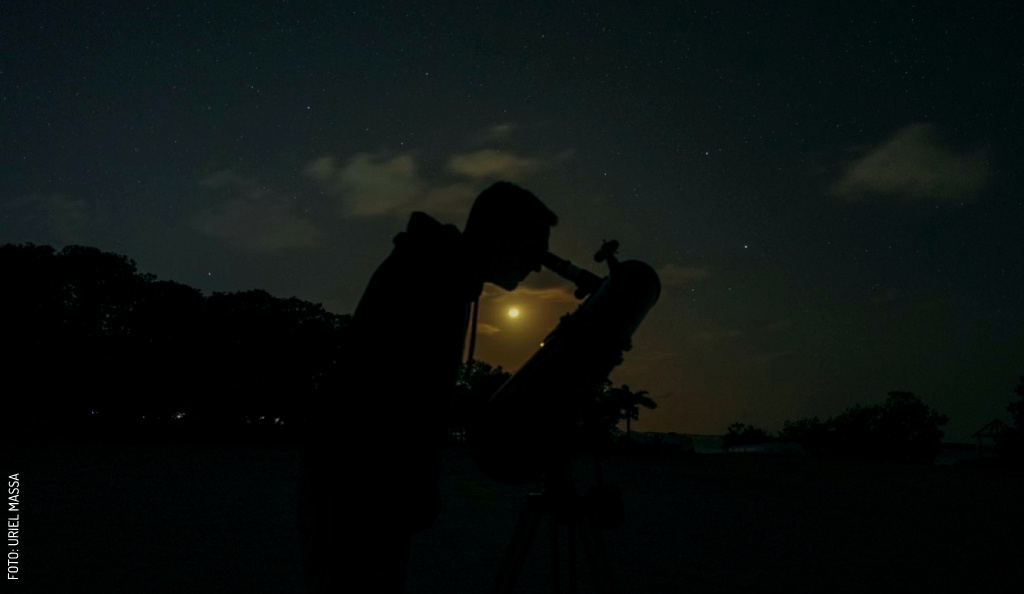
Yucatán Also Comes Alive at Night
Yucatán offers you unique nighttime experiences: bioluminescence, ghost towns, stargazing, crocodiles, and legends are just the beginning.